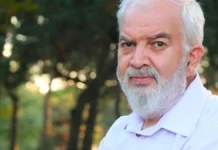In a landmark decision Turkey’s Constitutional Court has ruled that the statement of an eyewitness cannot be regarded as evidence of terrorism in the case of a former military officer imprisoned in late 2017 over alleged links to the Gülen movement, Turkish Minute reported.
A former first lieutenant in the Turkish Armed Forces (TSK) identified only by the initials M.G. was detained on Dec. 13, 2017 as part of an investigation launched by the Trabzon Chief Public Prosecutor’s Office. Based on a witness statement against him, his detention was ordered on charges of “membership in an armed terrorist organization.”
Turkish President Recep Tayyip Erdoğan has been targeting followers of the Gülen movement, a faith-based group inspired by Turkish cleric Fethullah Gülen, since the corruption investigations of December 17-25, 2013, which implicated then-Prime Minister Erdoğan, his family members and his inner circle.
Dismissing the investigations as a Gülenist coup and conspiracy against his government, Erdoğan designated the movement as a terrorist organization and began to target its members. He intensified the crackdown on the movement following a coup attempt on July 15, 2016 that he accused Gülen of masterminding. Gülen and the movement strongly deny involvement in the abortive putsch or any terrorist activity.
The court ruled to release M.G. pending trial on May 11, 2018, and he was acquitted of the charges against him on Dec. 22, 2020. However, his request to renew his contract as a TSK first lieutenant was denied by the authorities on Sept. 8, 2020.
The Constitutional Court in February 2021 issued its verdict on M.G.’s individual application submitted in April 2018. The reasoned decision on Wednesday published in the Official Gazette said the former military officer’s imprisonment was in violation of his rights to personal liberty and security. The top court also ordered the government to pay TL 40,000 ($4,878) in damages to M.G.
The court noted that it had concluded in some of its recent rulings that witness statements can’t be regarded as evidence of terror-related crimes since they aren’t based on any facts or events showing the defendants’ existence in the hierarchy of a terrorist group, links to any terror organizations or involvement in any terrorist activities.
The witness statements that had caused tens of thousands of people to be imprisoned in Turkey over alleged links to the Gülen movement in the past several years can no longer serve as evidence in such cases thanks to the landmark ruling, local media reports said.
Following the abortive putsch, the Turkish government declared a state of emergency and carried out a massive purge of state institutions under the pretext of an anti-coup fight. Over 130,000 public servants, including 4,156 judges and prosecutors as well as 20,610 members of the armed forces were summarily removed from their jobs for alleged membership in or relationships with “terrorist organizations” by emergency decree-laws subject to neither judicial nor parliamentary scrutiny.
According to a statement from Turkish Interior Minister Süleyman Soylu on February 20, a total of 622,646 people have been the subject of investigation and 301,932 have been detained, while 96,000 others have been jailed due to alleged links to the Gülen movement since the failed coup. The minister said there are currently 25,467 people in Turkey’s prisons who were jailed on alleged links to the movement.















